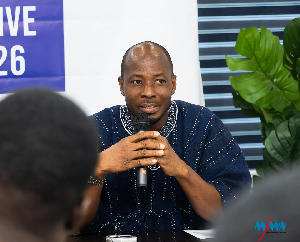The High Street Journal (HSJ) quotes Dr Nii Noi Ashong of Centre for Policy Analysis, as saying that the Government's policy of restraining expenditure and not dishing out more funds to contractors and certain sectors of the economy could be the reason for the stability of the cedi on the foreign exchange market.
He said it could also account for the slight slide in the inflation rate and as things stand now, the country may be said to be operating a de facto fixed exchange rate.
Dr Ashong, who was contributing to a roundtable discussion organised by the Private Enterprise Foundation (PEF), said the formal domestic debt has increased from 7.8 trillion cedis as at the end December 2000, to 8.5 trillion cedis by June 2001.
The external debt is around six billion US dollars, with Japan being owed about 60 percent of bilateral debt. The end of December 2000 domestic debt excludes those of Volta River Authority (VRA), Electricity Company of Ghana (ECG), Tema Oil Refinery (TOR) and payment arrears accrued by the government, which is a form of informal debt.
Dr Ashong said as at December 2000, road contractors were being owed 2.34 trillion cedis, out of which 70 billion cedis had been paid to date. He said the government has so far collected 10 billion cedis of the money owed by institutions and individuals.
The Government's decision to hold back funds may be detrimental because it would affect employment because small-scale businesses are not doing well, he stated.
Editorial News of Wednesday, 29 August 2001
Source: --












